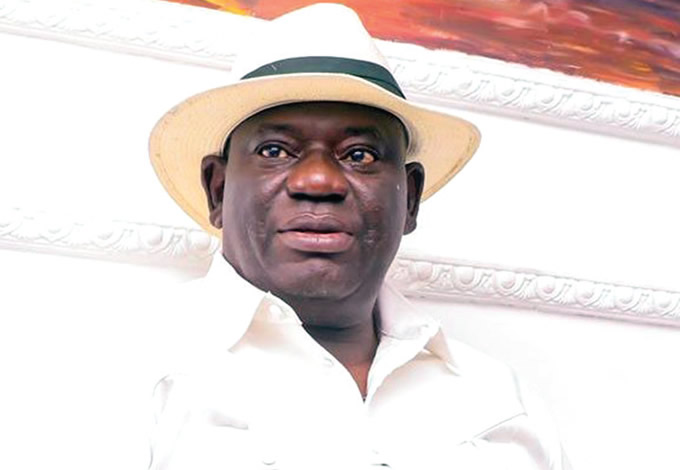The political landscape of the Ijaw nation, particularly in Bayelsa and Rivers states, has been marked by internal divisions and power struggles, necessitating calls for unity and reconciliation. Professor Benjamin Okaba, President of the Ijaw National Congress (INC), the apex socio-cultural organization of the Ijaw people, has stepped into the fray, urging key players to prioritize the collective interests of the Ijaw nation over individual political ambitions. The crux of the matter revolves around the fractured relationship between Bayelsa State Governor Douye Diri and George Turnah, the acting Chairman of the Peoples Democratic Party (PDP) in the state. This rift is further complicated by the involvement of Nyesom Wike, the Minister of the Capital Territory, a powerful figure with considerable influence in the region.
The discord between Diri and Turnah stems from their differing allegiances within the PDP. Turnah, a known ally of Wike, leads a pro-Wike faction in Bayelsa known as NEW Associates. This alignment has placed him at odds with Governor Diri, who has chosen a different political path. Recognizing the potential damage this internal conflict could inflict on the Ijaw nation, Okaba has called for Turnah to reconcile with Diri, emphasizing the need for unity and collaboration. He stressed the importance of a broad-based political approach, cautioning against over-reliance on any single political alliance, which could potentially marginalize the Ijaw people’s interests.
Okaba’s call for reconciliation came during a courtesy visit by Turnah to the INC president in Yenagoa, the Bayelsa State capital. Turnah, seemingly seeking to mend fences, briefed Okaba on the prevailing political climate in the state and offered an apology for previous remarks regarding the INC, which had been misinterpreted and caused some friction. Okaba welcomed Turnah’s gesture, commending his humility and recognizing the apology as a positive step towards healing the rift. However, he underscored that genuine reconciliation requires extending the same olive branch to Governor Diri, a move crucial for fostering unity within the Ijaw community.
Okaba’s appeal for reconciliation extends beyond the immediate political dynamics in Bayelsa. He also addressed the political crisis brewing in Rivers State, highlighting the INC’s deliberate silence on the matter. This strategic silence, according to Okaba, is intended to provide space for Governor Siminalayi Fubara to pursue reconciliation with his political mentor, Nyesom Wike. The strained relationship between Fubara and Wike adds another layer of complexity to the political landscape of the Ijaw nation, further emphasizing the need for dialogue and compromise.
Turnah, during his visit to Okaba, echoed the sentiment of unity, emphasizing that ethnicity should not be a dividing factor in politics. He urged the INC to maintain its neutrality and avoid being drawn into partisan political battles, stressing that the organization’s primary focus should be on advocating for the interests of the Ijaw people. This call for a non-partisan approach aligns with Okaba’s emphasis on broad-based political collaboration, highlighting the need for the INC to represent the collective interests of the Ijaw nation, irrespective of individual political affiliations.
Beyond calling for unity within the INC, Turnah also appealed to the organization’s leadership to intervene in the Rivers State political crisis. He urged Okaba and the INC to facilitate peace efforts aimed at restoring Governor Fubara’s political standing and mending his relationship with Wike. Turnah stressed that sincere apologies and genuine reconciliation efforts are essential for resolving the ongoing political turmoil in Rivers State. This appeal underscores the crucial role the INC can play as a mediator and peacemaker in resolving internal conflicts within the Ijaw nation, promoting unity and stability in the region. The situation calls for a delicate balancing act, navigating the complexities of political allegiances while upholding the paramount importance of Ijaw unity.














